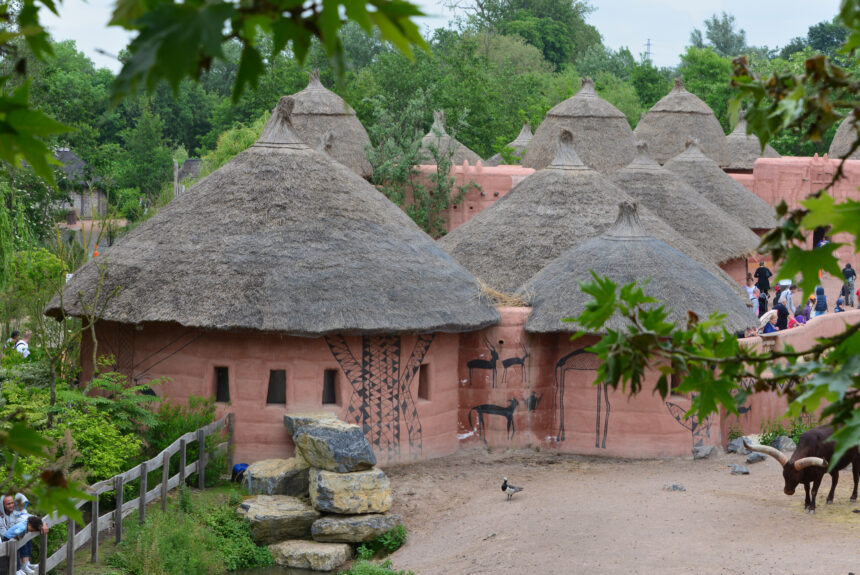A recent study conducted by Stanford University scientists underscores the importance of electricity access. Using Sub-Sahara Africa as a case study, the research team found that communities in Uganda with access to electricity were able to boost their wealth twice as fast as communities that did not have access to electricity. The release of this study comes at a critical time when countries are wrestling with how to best address global poverty and tackle climate change.
>>>READ: Energy Accessibility and Affordability Drives Human, Climate Progress
Although only 41% of Uganda is covered by the electrical grid, those areas benefit from significant improvements in quality of life including home construction and appliances.
This is not the first study that linked access to reliable electricity and reductions in poverty. A 2020 report in Economics Bulletin that studied electricity access in Côte d’Ivoire found:
“A positive and significant effect of access to electricity on household consumption per capita. Access to electricity increases household consumption per capita by 5.2 to 23.3 percent. The results also highlight that the lower the regional rate of access to electricity, the higher the regional poverty rate.”
Improving the economic well-being of a country has demonstrable impacts on its climate resiliency. In its 2022 Free Economies are Clean Economies report, C3 Solutions finds that economic wealth has a strong, positive correlation with environmental performance and climate resiliency. This is because as countries develop and become wealthier, they are able to invest in infrastructure to reduce disaster-related fatalities.
Expanding electricity access in Africa will require a concerted effort from both the public and private sectors. One study conducted by an African bank showed that the continent needs an annual investment between $32 to $40 billion to expand universal electricity grid access to 1.3 billion Africans. As of 2020, 98% of North Africa had access to electricity while only 47% of West Africa and 30% of Central Africa were able to reliably access power.
The private sector is already stepping up to provide solutions. The Rockefeller Foundation, for instance, has launched three separate initiatives to expand microgrid technologies in rural areas of Sierra Leone, Uganda, and Tanzania. California-based Natel Energy has signed a memorandum of understanding with the Democratic Republic of Congo to develop 36 small hydroelectric projects in the country.
Similarly, the United States and Japanese governments have partnered with Ghana to export small modular nuclear reactors to the West African nation. Through this partnership America and Japan are conducting a feasibility study for NuScale’s VOYGR SMR nuclear power plant. Meanwhile, the World Bank has announced a major initiative to electrify Sub-Saharan Africa with distributed renewable energy.
>>>READ: Affordable, Reliable Energy is Needed to Curb Global Poverty, Climate Change
The United Nations (UN) has suggested that Africa seek to industrialize their continent through renewable energy.
UN Secretary-General Antonio Guterres has called for more robust investments in African renewable energy, highlighting the fact that Africa receives only 2 percent of clean energy investments.
“The cost of capital for renewable energy projects in the developing world can be seven times higher than in the developed world,” Guterres stated. “Upfront costs for solar and wind power account for 80 per cent of lifetime costs, meaning big investments today will reap even bigger rewards tomorrow.”
Guterres’s stance is aligned with the African Union (AU).
In July, the AU released a statement announcing their official adoption of the African Common Position on Energy Access. In this statement, the AU acknowledges that Africa will continue to pursue and expand renewable energy technology while still utilizing non-renewables in the short term to meet energy and economic demands.
“This is an important and major step forward towards ensuring and confirming Africa’s right for a differentiated path towards the goal of universal access to energy, ensuring energy security for our Continent and strengthening its resilience, while at the same time acting responsibly towards our planet by improving the energy mix.” said H.E. Amani Abou-Zeid, African Union Commissioner for Infrastructure and Energy
Developing robust energy infrastructure is necessary to help the global poor escape their economic plight. Affordable, dependable power is a necessity for lifting Africans out of poverty. Increasing economic vitality, in turn, will allow countries to develop the necessary infrastructure and innovations to improve well-being and reduce climate risk.
Corey Walker is a budding historian and economist. He loves drinking hot chocolate, wearing sweaters, and watching football in the fall.
The views and opinions expressed are those of the author’s and do not necessarily reflect the official policy or position of C3.
